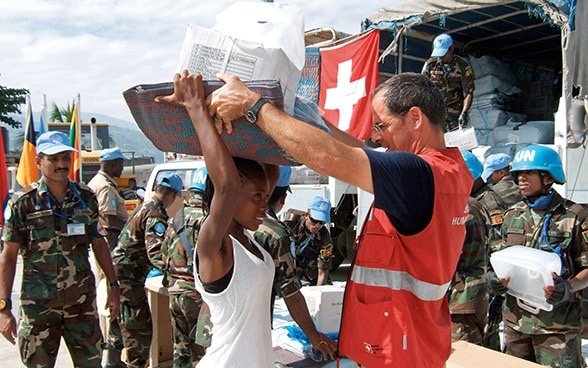To win, you must know how to do

By Giovanni Piero Spinelli, CEO & Director of Intelligence Division of STAM Strategic & Partners Group Ltd, March 2020
Generally, catastrophes and emergencies, both of anthropic and natural origin, by default, are chaotic events that imply an environment of confusion, interruption and interruption of services. By defining organized, studied and planned SOP’S (Standard Operating Procedures), it is possible to anticipate and project forward in order to develop a decision-making process capable of generating better results. This somehow reinforces the resilience of a community and allows it to recover better and return to normal if affected in some way by an event.
In the absence of SOP’s (Standard Operating Procedures) organized and built ad hoc, both the peripheral bodies and the central emergency management remain unprepared and are unable to interface operationally. Coordination must include everyone so that everyone is able to know exactly what to do. A collaborative effort by everyone is always necessary, especially by professionals who must operate in unison, putting aside sterile and stupid individualisms, but adapting adherently. Personally I believe that it is essential that the procedures for the management of any type of emergency or intervention are adopted and become an effective tool for everyone, and only if everyone receives specialized training at several levels. So an important activity, in addition to training, based on awareness to make the communities understand the risks, to avoid exposing them, is essential.
Decision-making activity expands situational awareness, to truly understand the event, context and interdependence necessary for effective integration and sharing of information, in order to prepare for specific types of accidents that represent the greatest risk for the security of a nation. Data and information must necessarily be shared between public, private and partner actors in order to meet mission needs. The ability to use shared information is crucial in order to produce operational plans and Sop’s capable of supporting operations. This offers the possibility of identifying numerous actors, capable of providing assistance and orientation to state – and non-state – actors employed in the front line. A strong and adherent networking allows the recognition of data that are in some way available, what type of functionality is used and which in use can be provided to help users safely carry out their activities.
A defined doctrine becomes absolutely crucial in the management of operations such as:
- Prevention against terrorist attacks.
- Border security.
- Application of immigration laws.
- Management of cyber space.
- Activities against FIE (Foreign Intelligence Entities).
- Post-conflict or post-catastrophe resilience activities.
Coordination, together with well-applied and distributed Sop’s, is necessary to support these activities, providing ways to access data, information, case studies, experts on the subject and other participating resources. It is absolutely crucial that there is a specific approach of the country or nation system to the preparation for threats and dangers that today represent a very high risk for nations, including the loss of freedom and constitutional rights. The preparation in this regard must be general and not only of the state apparatuses, which many times on their own fail and will not be able to cope with highly complex threats.
Every member of a country must actively contribute, including citizens, communities, the private sector and non-profit organizations, together with the state’s apparatus for the security of the country, against any endogenous and exogenous threat. For this reason it is necessary to be prepared to handle emergencies, creating adherent doctrines that can always and at any time be ready.
It is important to train in the same way as you fight and fight in the same way as you train, correcting what doesn’t work, understanding mistakes and weaknesses. Identify and define the best procedures and implement them in the execution of the same. This is crucial for managing any type of emergency. The goal is to identify and take a risk and threat management approach, as well as recognize the risks and understand our vulnerabilities. We must always evaluate our abilities in order to produce better results, in strengthening our resilience, recognizing that in some way we are in danger.
Collective operations require that a country be made safe when affected by any anthropogenic or natural catastrophe in order to safeguard survival through resilience, basing efforts on the following areas of intervention:
- Prevention.
- Protection.
- Mitigation.
- Answer.
- Recovery.
A systematic and proactive approach is therefore needed to guide government structures, the private sector and the civilian population, to operate by reducing problems and the risk threshold, to reduce human losses, property, environment, freedom and national sovereignty. Flexibility, integrated with preparedness, allows a government to manage an integrated organizational structure capable of dealing with multiple accidents and threats.
It is important for everyone to do their part professionally and to entrust the rest in the hands of God.



